The Talking Walls of Buenos Aires opened at The Fridge Gallery DC on the 13th of July, 2013. The exhibition featured works from 21 urban artists from Buenos Aires’s graffitimundo. The history of public art and urban art in Buenos Aires is politically charged and of enormous social significance. This exhibition showcased works from the leading artists of a generation, who have used the city walls as a channel for their creative energies. Their artwork encompasses abstract forms, vibrant colours and elaborate graphic and figurative compositions. The works are unified through a sense of anarchy and discord, whether it be through unconventional techniques, the subversion of expectations, or the incorporation of polemic subject matter. The exhibition offered a glimpse into the collective creative conscious of Buenos Aires, and gave visitors a counterpoint to conventional styles and themes present in North American urban art.
Ever, Contradition
This work by Ever continues his exploration of the power of icons, and the gulf between a vision and its implementation, and the contradictions which can emerge.
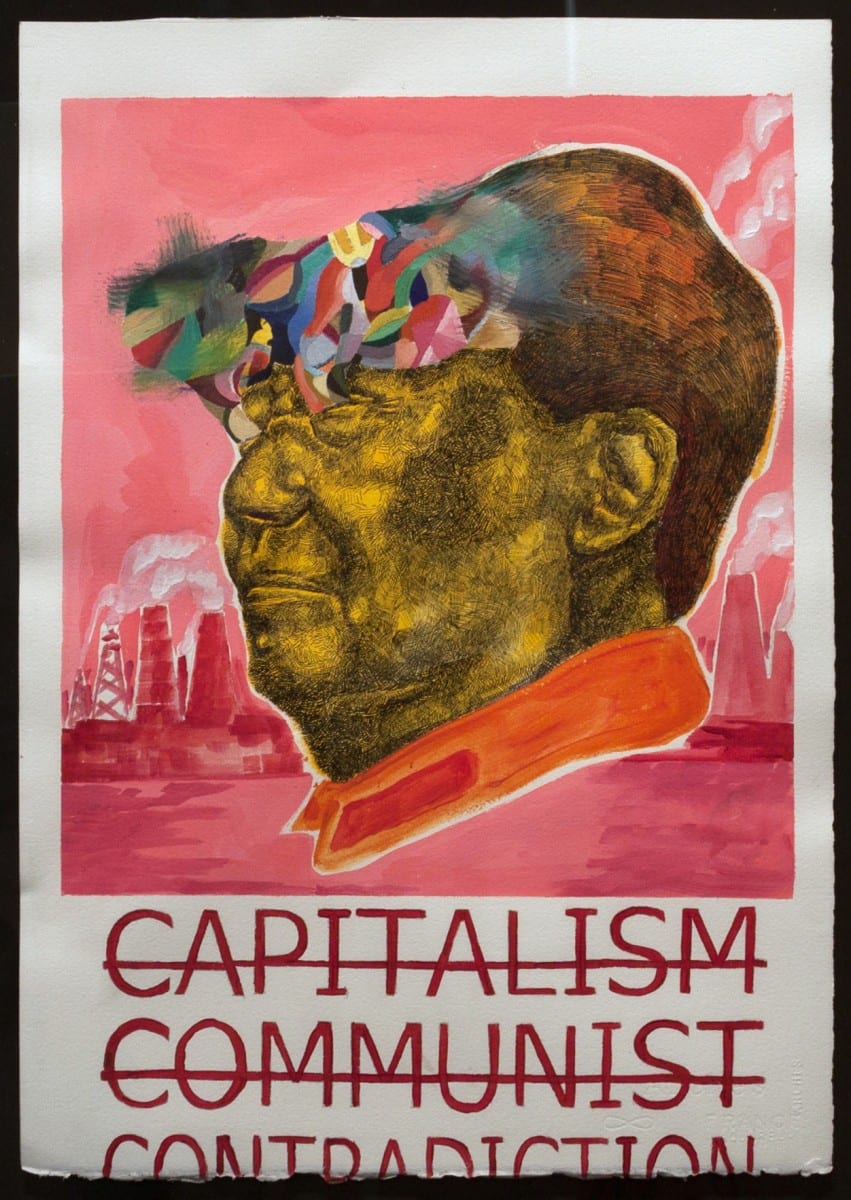
Ever, Explanation of the Paradoxical Harmony of Communism and Advertising
Ever’s work is confrontational and subversive, challenging popular expectations of portraiture, muralism, public art and political propaganda. This piece featuring the iconic image of Chairman Mao explores the relationship between dreams, visions and reality.
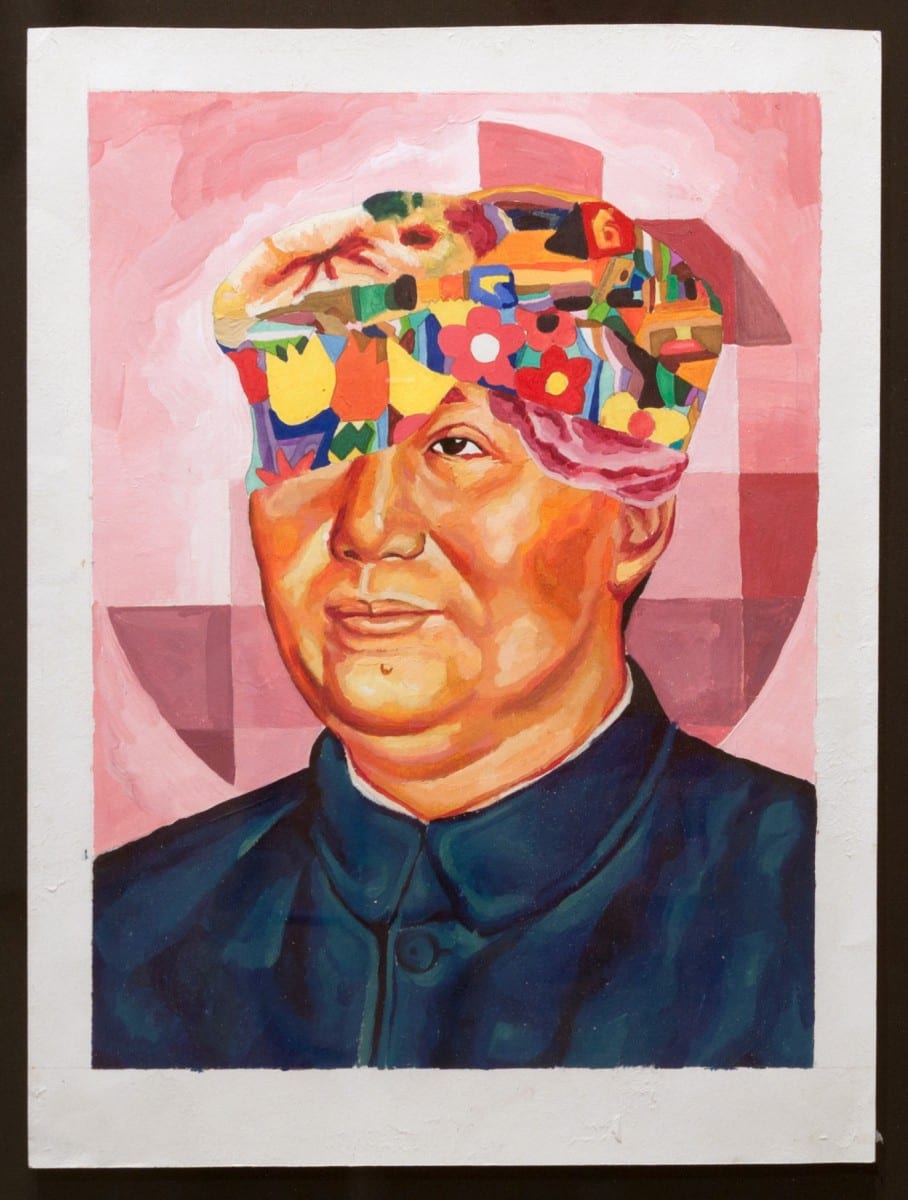
Malatesta, Frying Queen
Malatesta is one of Buenos Aires’ most celebrated stencil and wheatpaste artists. His works for the exhibition were all created using found metal objects. The images were created using paint, metal etching tools and corrosive materials which oxidized the metal to create images from rust.
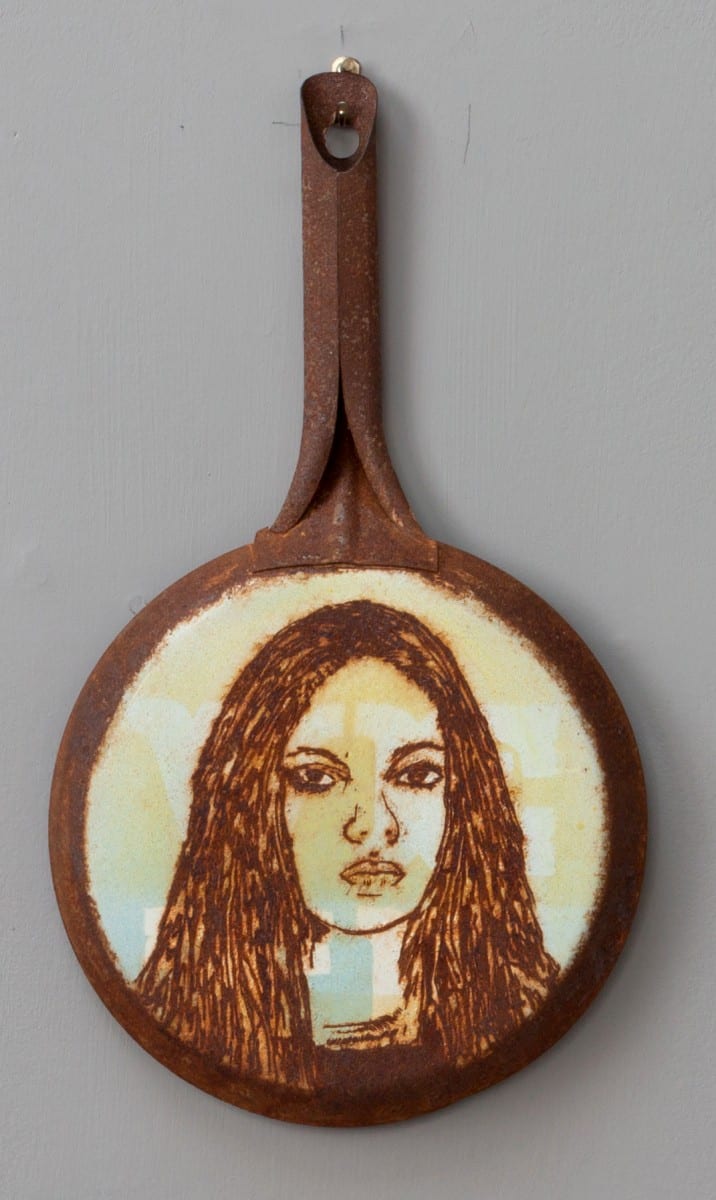
Rundontwalk, Pila de Libros
This piece was inspired by Buenos Aires’ love of literature, and in particular the city’s annual book fair which features a huge attendance from all ages and all corners of society.

Stencil Land, Bailarina
The Argentine president made headlines after she dismissed mass protests against her government as nothing more than self-interest from the wealthiest sectors of society. Stencil Land transformed this observation into a satirical representation of political resistance in Buenos Aires.
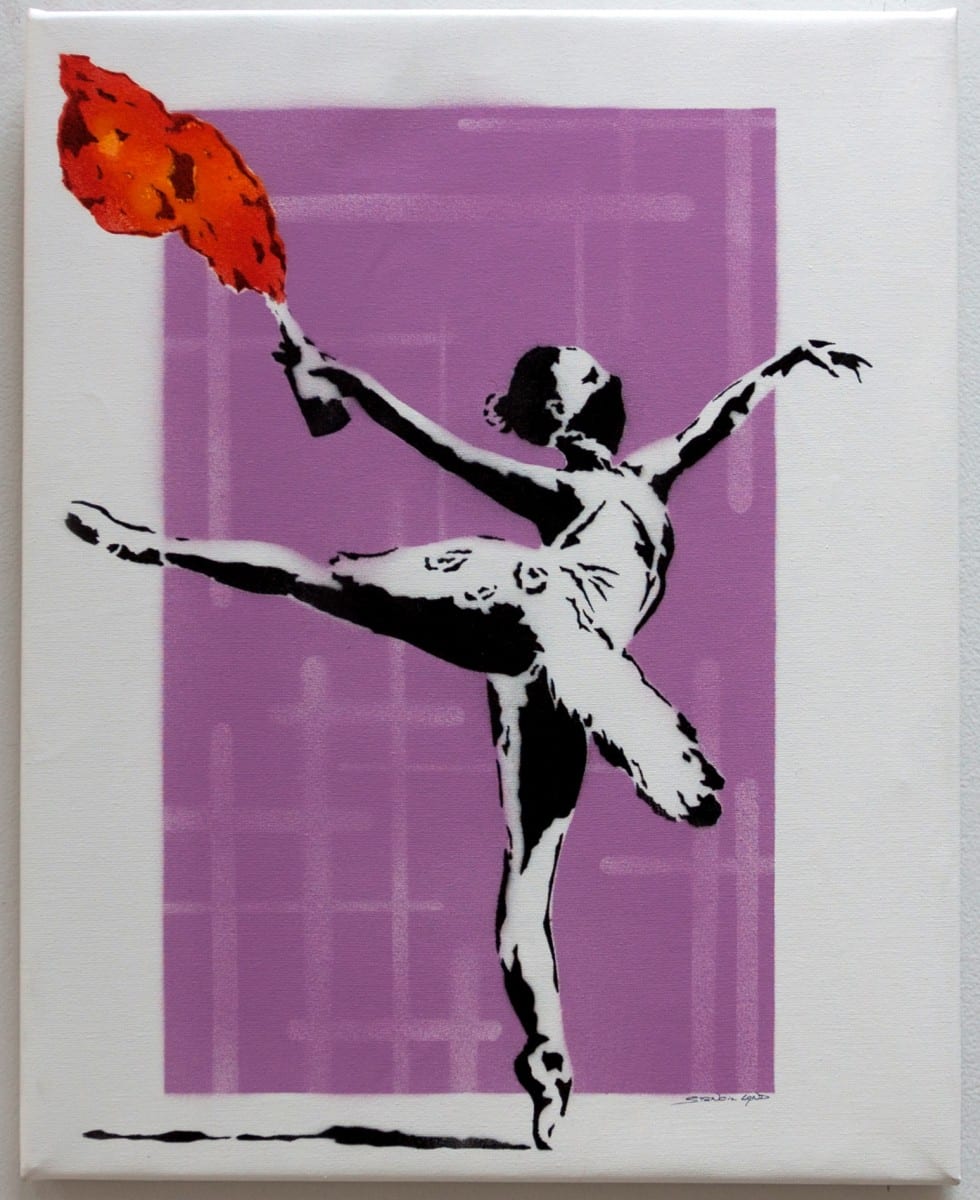
Tester, Timorato
Tester is a prolific artist whose works incorporate his talents as a painter, stencil artist and typographist. His delicate brushwork and images are set against a background of surreal text which hints at meaning but defies attempts at deconstruction.
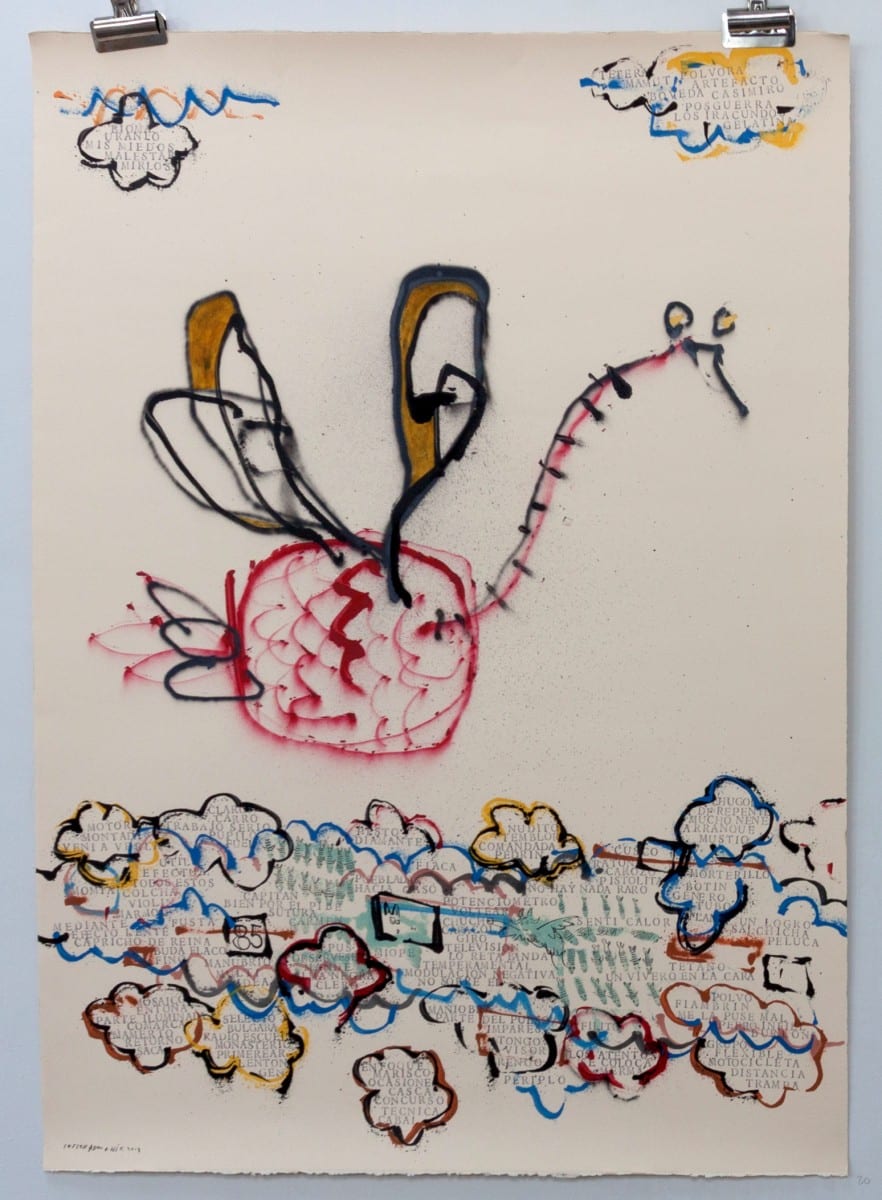
BS.AS.STNCL, Siempre-Nunca/ Rock-Pop
BS.AS.STNCL were one of the first collectives to take to the streets following the Argentine economic crisis in 2001. Stencils are an important part of the Buenos Aires’ tradition of political propaganda and activism. The collective created works which subverted this traditional medium; using popular icons in works which range from political satire to surrealism.
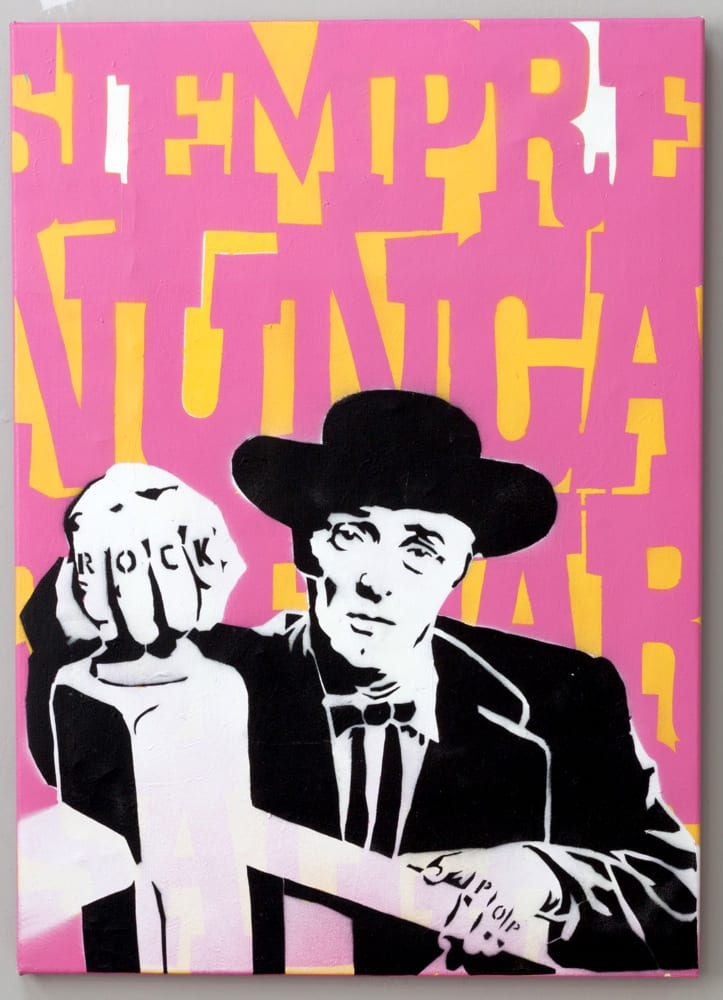
Cabaio, Tres Chineses
Cabaio started working in the streets as part of the politically charged art collective Vomito Attack. His solo work is characterised by its kaleidoscopic layers and colours. Intricate stencils, textures and graphic images vie for attention in his provocative compositions, which are both aesthetically intriguing and rich in symbolism.
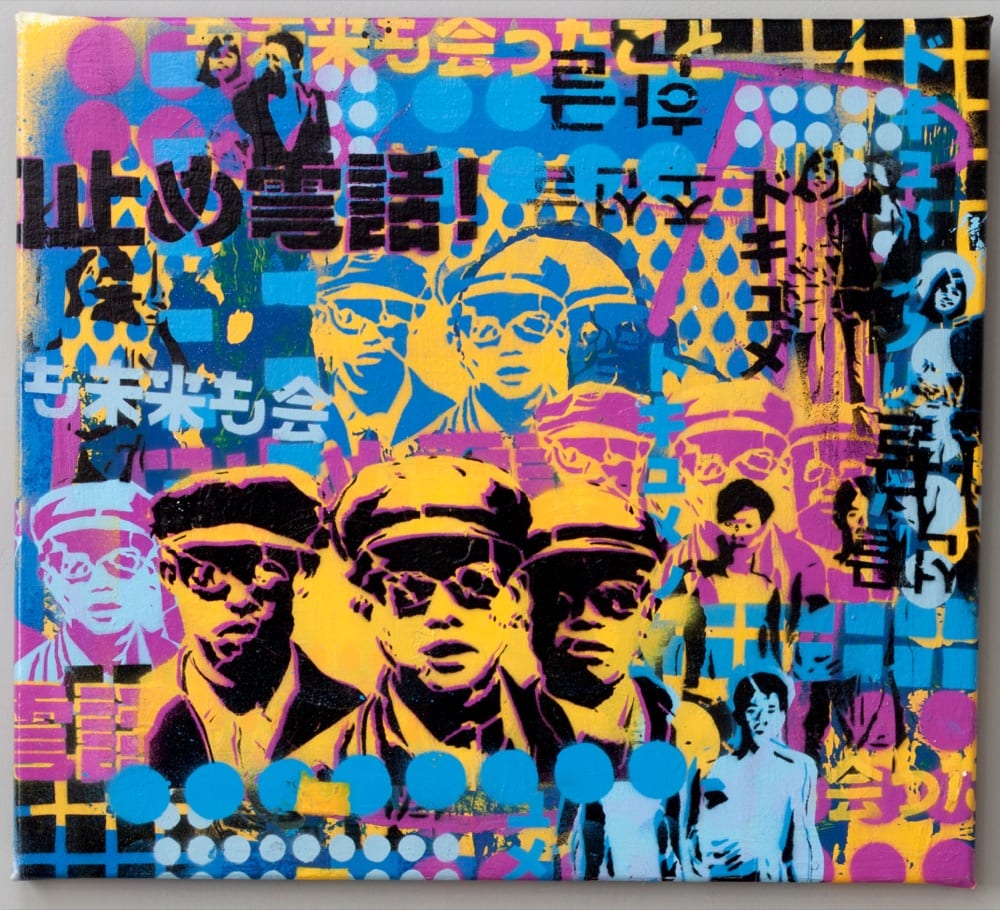
Rundontwalk, Marx Death
Another of Buenos Aires’ leading stencil artists, Fede Minuchin from Rundontwalk collective incorporates touches of dark humour in his intricate and layered compositions.
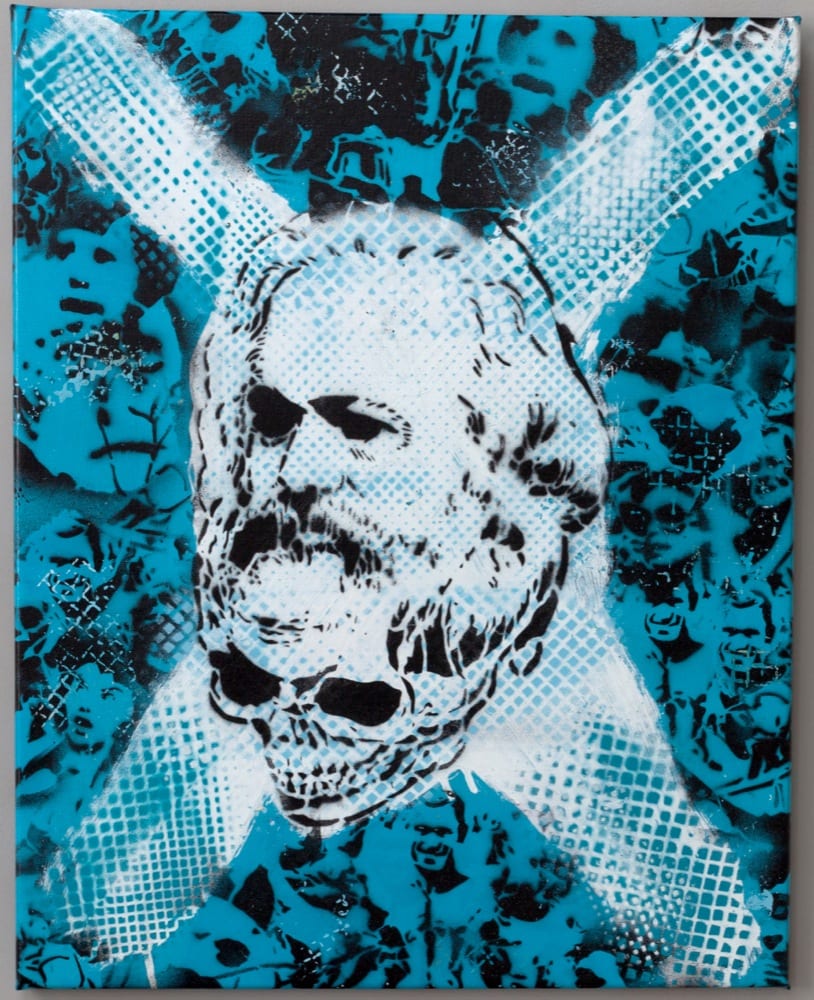
Sonni, Music Machine
Sonni’s naïve, cartoonish aesthetic provided a provocative visual counterpoint to the negativity and monochromatic propaganda that flooded the streets of Buenos Aires following the Argentine economic crisis. His style was very influential in Latin American and across the US, and this piece exemplifies his use of bright primary colours and joyful imagery.
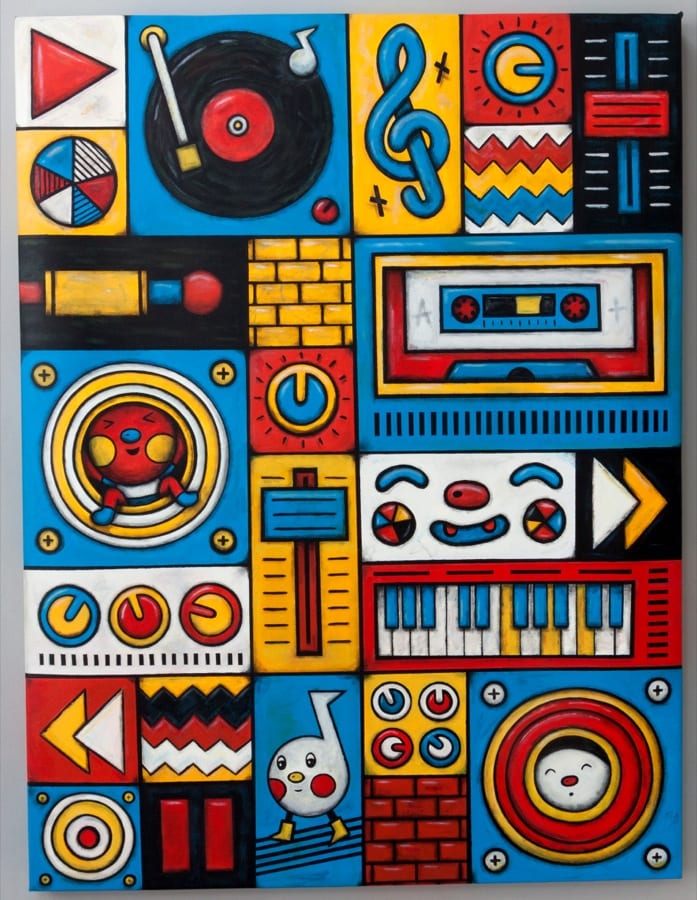
Stencil Land, Nieves Blancas
A provocative piece from Stencil Land, White Snows features the Disney character, famed for her innocence and beauty, about to snort something from a mirror…
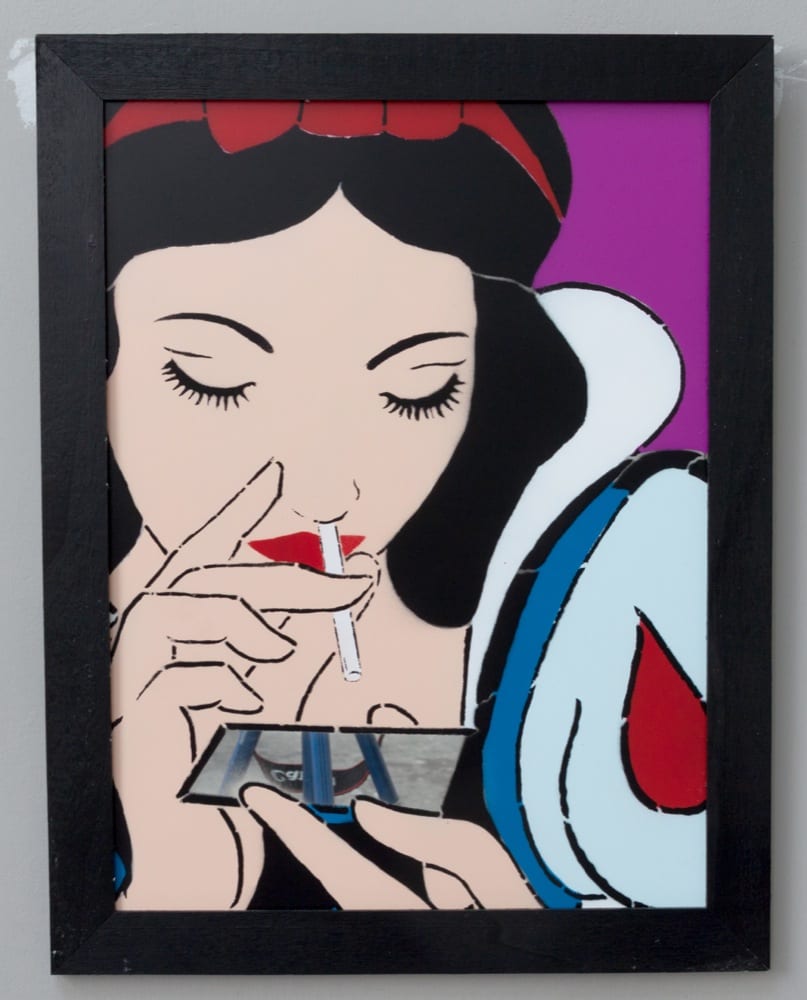
Mart, One Shot
As a young artist, Mart learned to make the most out of every can of aerosol he was able to acquire. The flowing lines and sketch style of his street and gallery pieces demonstrate an unconventional mastery, with delicate fluid lines capturing the essence of his subjects. This particular piece was inspired by a character he met on a recent trip he took to Brazil.
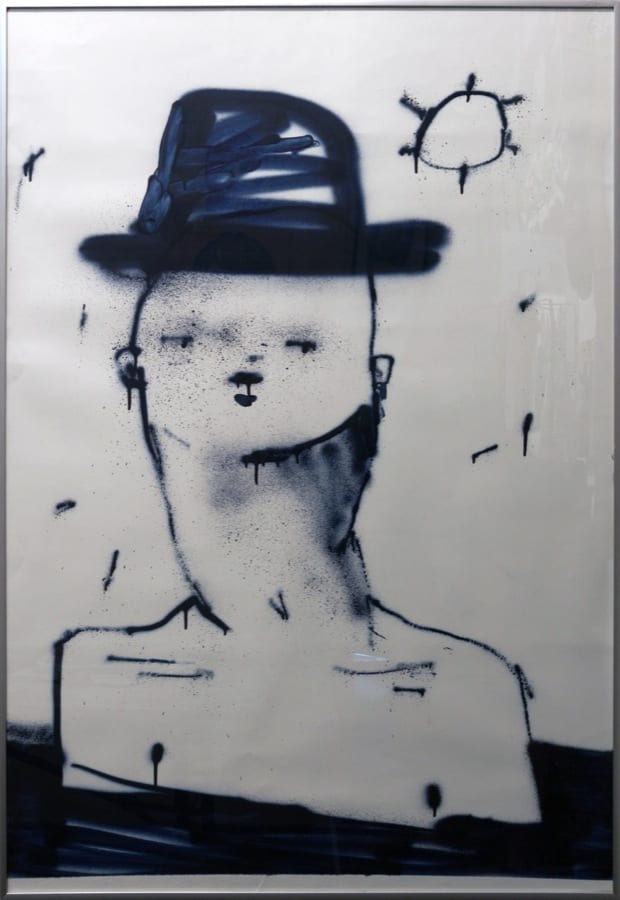
Mart, Series de Bailarines
This series of artworks were sketched on hand made paper, with the delicate colours of the recycled materials providing the inspiration for the pieces. Mart uses pen and ink to create the delicate silhouettes of dancers in various poses using his distinctive flowing lines.
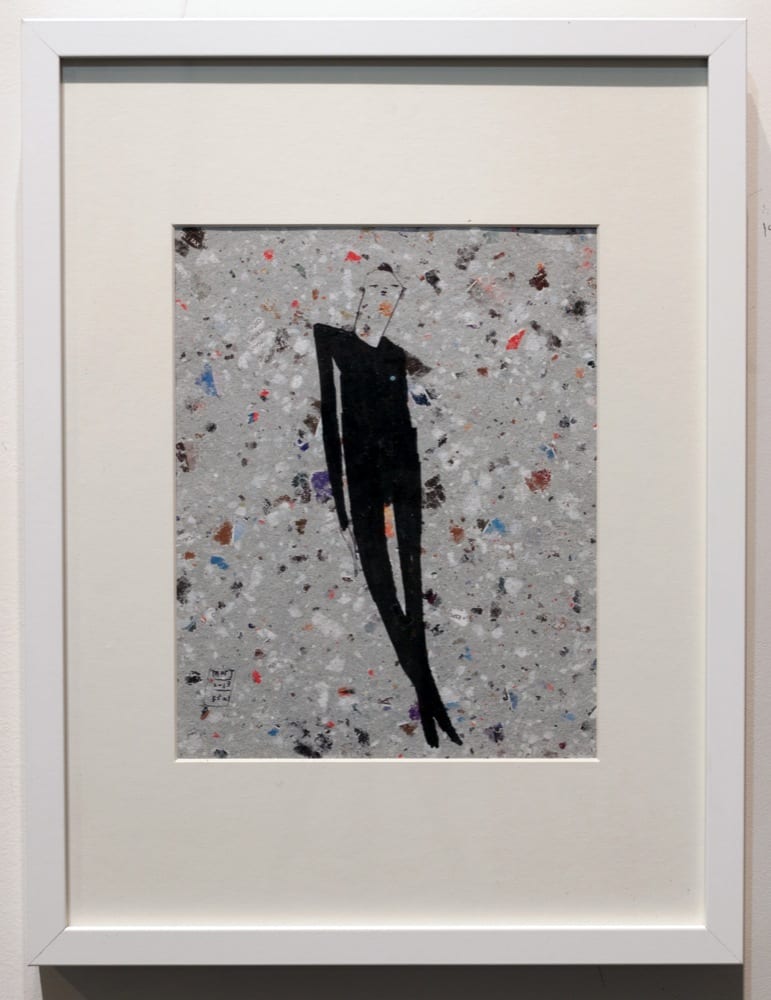
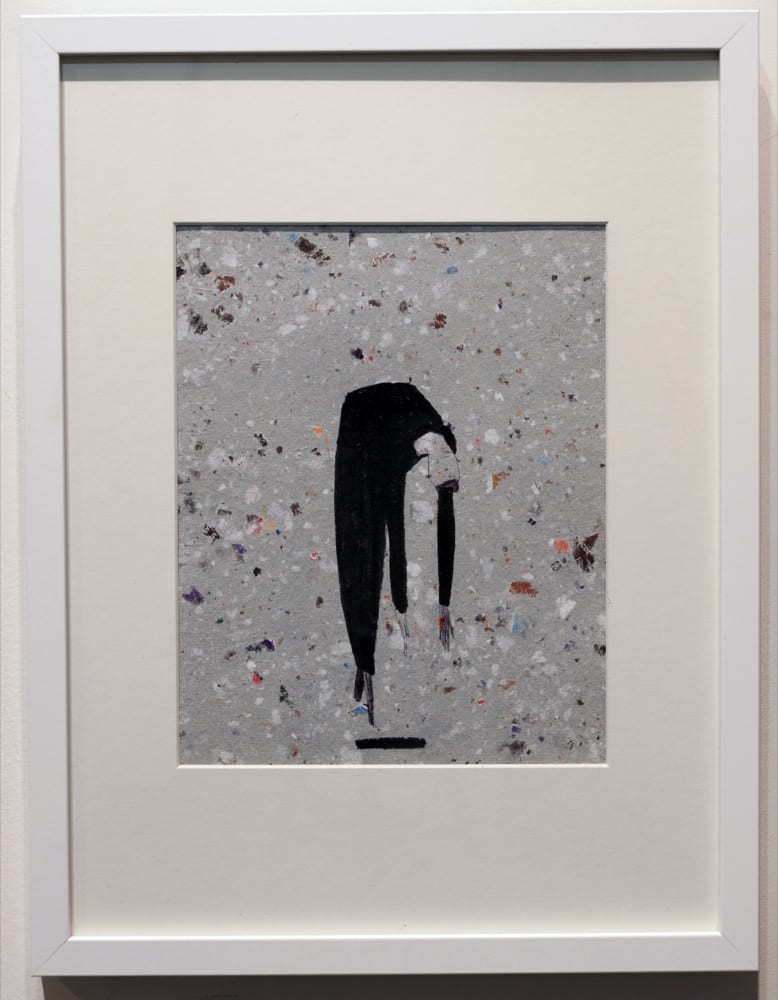
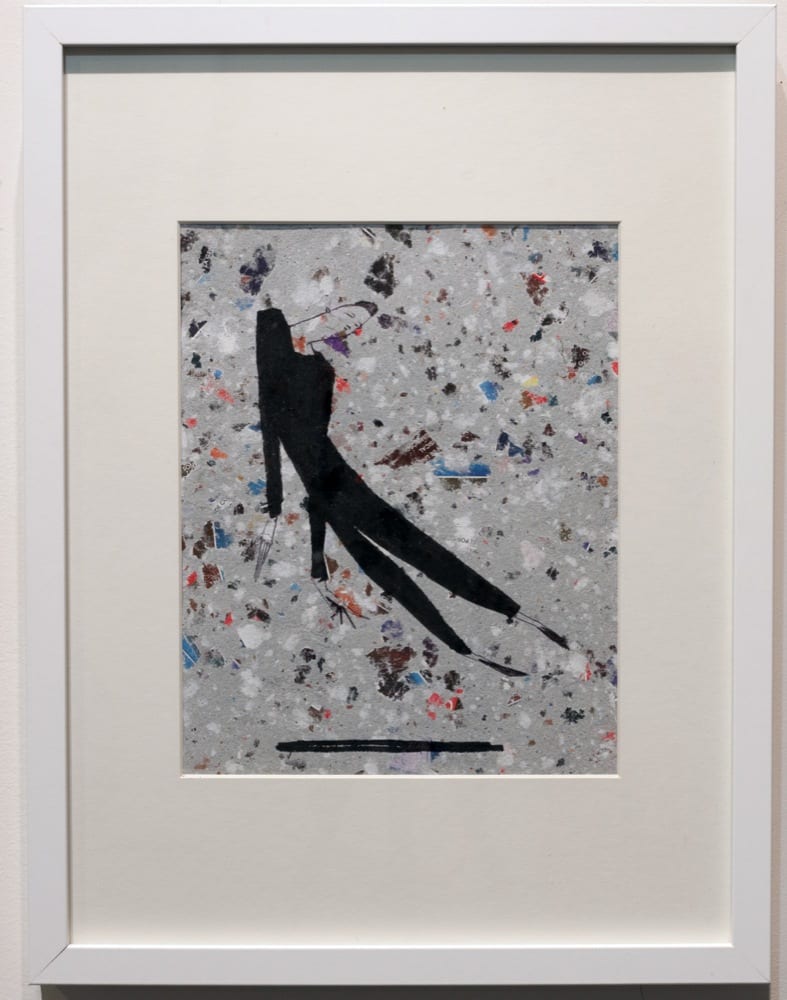
Pedro Perelman, Past
Pedro is an accomplished artist, whose talents in graphic design and music influence his compositions. This piece created in acrylic, lacquer and wood demonstrates his trademark colours, clean lines and attention to detail.
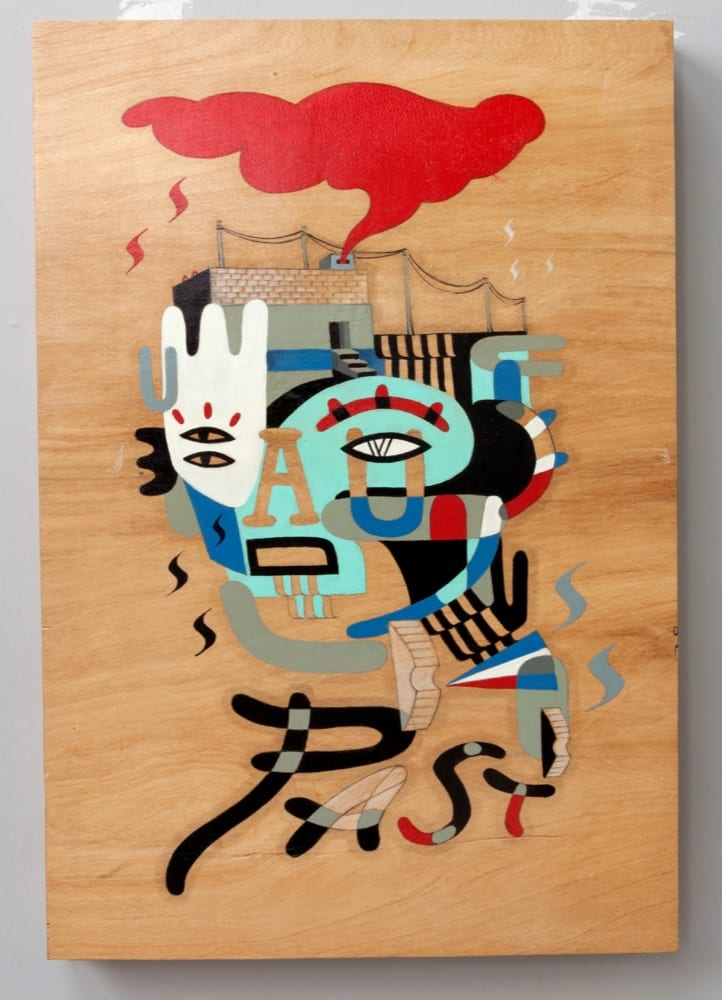
Tester, Pintar las Rejas
In this large format piece Tester has created an imposing and intricate composition. The scale of the piece allows Tester to use of aerosol and other techniques to create arresting images, whilst letterpress and other typographic techniques give the piece a delicacy and finesse seen in his smaller works.
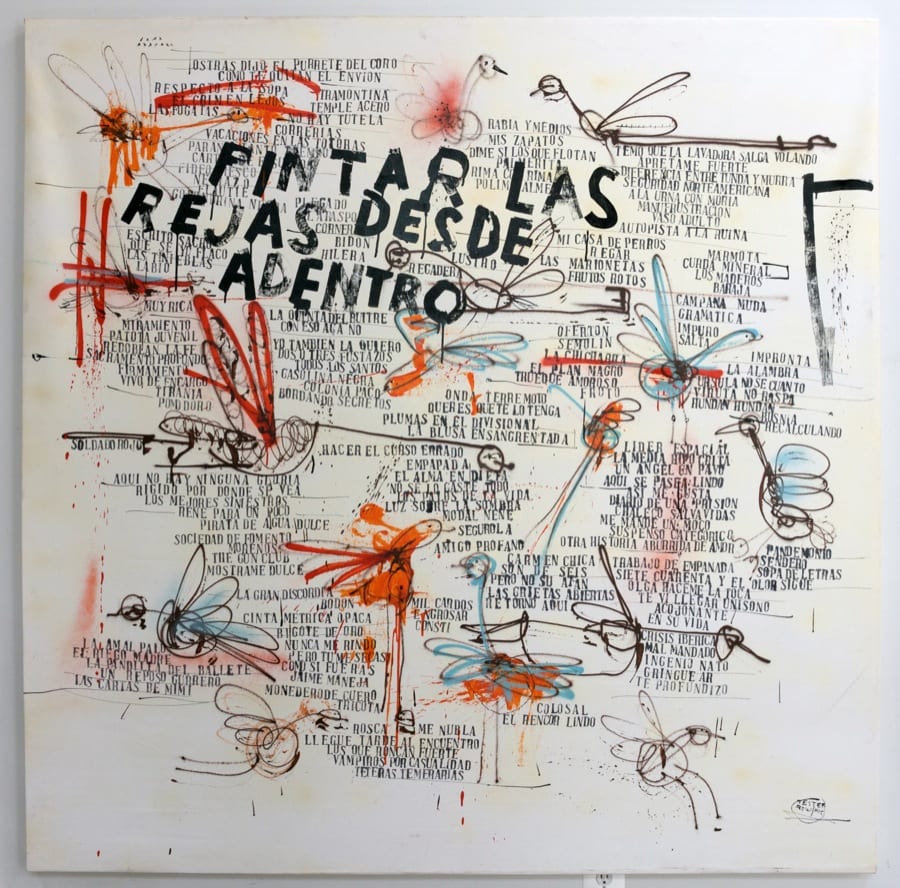
Featured image: Stenci Land, Nieves Blancas, aerosol on mirror, 35 cm x 45 cm, 2013
To learn more about the artworks in this collection, contact graffitimundo at info@graffitimundo.com
